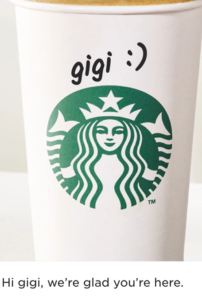Today, we’re continuing our deep dive into the most important trends affecting your business, brand, and culture heading into 2020. Following our look at content strategy, let’s examine employer brands.
Remember when the common sentiment toward millennials was laden with disgust? Who were those entitled young people and their outrageous demands for flexibility, remote working, and—gasp—having a greater purpose in work than making money? It wasn’t that long ago, but oh how the tides have changed.
Now, as we all know, those “millennial” demands have not just become normalized, but meeting them has become the de facto minimum requirement for employers if they’re going to attract and retain top talent, of any generation. But just as the demographics of employees—and their shared needs and desires—shift every year, the trends of effective employer brands shift as well.
As a refresher: an employer brand is the articulation of what makes your company a great place to work. Your employer brand is integral to every touchpoint an employee or prospect might interact with, from the website to social media to the interior design of your office and internal communications. Because the potential touchpoints are vast, consistency is key to ensure optimal impact on your audience: the people most critical to making your business a success. Staying on top of employer brand trends means keeping in touch with what employees are looking for, and thereby ensuring your employer brand is relevant.
Here are the top trends to look out for in 2020.
1. Authenticity
Publicly displayed company values are key indicators for employees looking to align their personal values with how the business is run. But values are meaningless unless you can back them up. Take ‘family-friendly.’ Paid parental leave is nice, but if new parent employees are expected to be available 24/7, traveling all the time, or have rigid expectations placed on when they need to be in the office once parental leave is over, the ‘family-friendly’ value comes across as completely disingenuous. And thanks to sites like Glassdoor and Indeed, it’s pretty easy to find the truth.
2. Growth
As ‘digital transformation’ has become common parlance, employees understand that job security depends on acquiring new skills regardless of where you are in your career. And this doesn’t necessarily mean sending employees to expensive conferences or bringing in a world-renowned speaker. Offering employees exposure to senior leaders or inviting them (even as a fly on the wall) to big meetings is just as important for growth as more formal activities. Using the employer brand to communicate these types of opportunities demonstrate to your employees that you are invested in their development, which in turn makes them feel invested in your company.
3. Personalization
“To attract and retain talent, we’re seeing organizations creating a consumer-grade experience at work which reflects their attractive, authentic employer brand,” says Forbes columnist Rebecca Skilbeck. Personalization, i.e. acknowledgment that I am an individual, not a number, goes hand in hand with hustle. It’s an implicit contract: I work hard for you, you give me praise to keep me motivated. Being treated as an individual, whether through customizable career pages à la Nike or Starbucks, or 1-1 praise indicates a company values your talent and contribution, your experience and perspective. And by acknowledging that through personalization efforts, it creates a virtuous cycle in which employees are more motivated to continue performing.

4. Brand Association
An employer brand’s effectiveness goes hand in hand with the external brand. So if the brand itself lacks public awareness, sells a meaningless product, or worse, is involved in shady behavior, that reputation is going to impact how employees and prospects feel about the company. A recent LinkedIn study has proven that more than 75% of job seekers research a company’s reputation before applying. People care about the brand they are working for because it reflects on their personal brand—which has become more important than ever in ensuring long-term career growth. Assessing your brand reputation and taking control of the narrative is imperative if you’re going to attract and retain top talent.
Keep your eyes here for the latest and greatest in all things 2020.
Emotive Brand is a brand strategy and design agency in Oakland, California.





